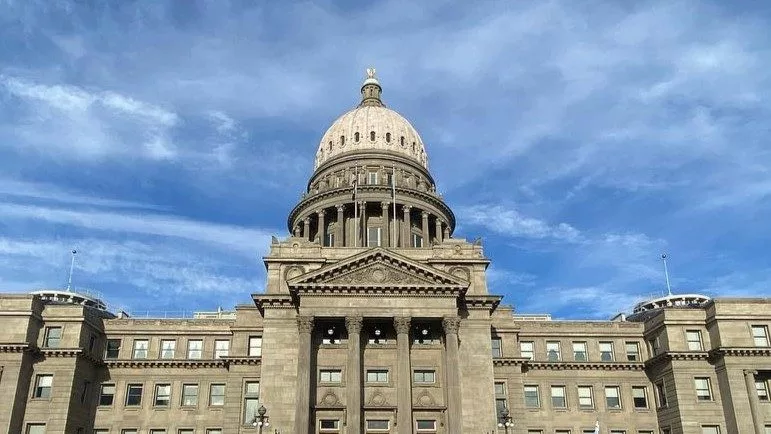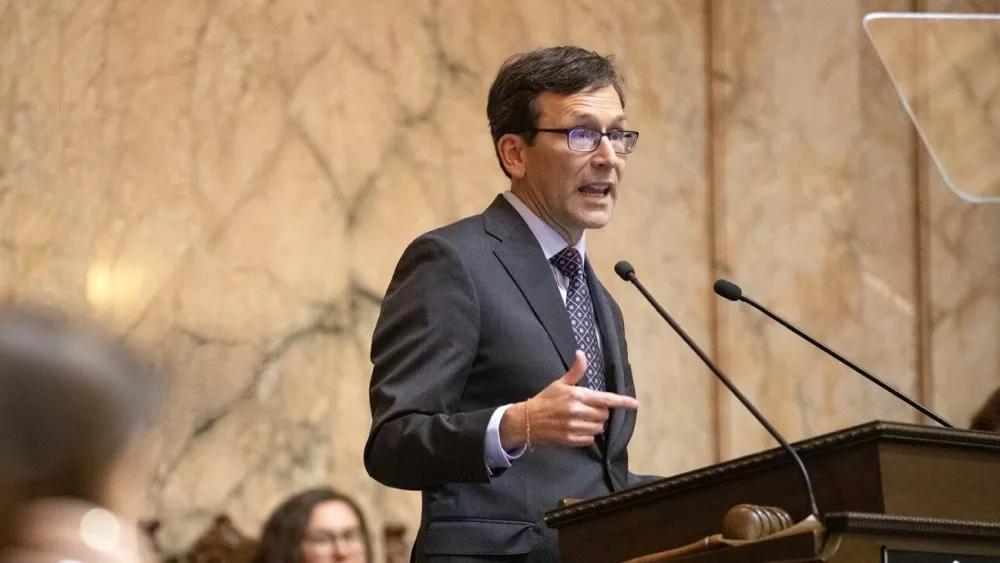OLYMPIA, WA – Washington state lawmakers next year are set to again discuss whether public sector unions can bargain over their employers’ adoption of artificial intelligence technology.
House Bill 1622 looks to require government employers to bargain with unions over the use of the technology if it affects wages or worker performance evaluations.
This past session, the bill passed the House mostly along party lines, with Democratic support, before stalling in the Senate.
Opponents, including business groups and city officials, argued the measure would skew the balance of power between employees and managers too far toward workers. They also said the mandate could delay workplace innovation.
With hopes of getting it over the finish line in 2026, the bill’s lead sponsor, Rep. Lisa Parshley, D-Olympia, brought the idea to the state’s artificial intelligence task force on Thursday. The Legislature created the task force in 2024.
“Public sector bargaining covers wages, hours and working conditions and agencies are already required to bargain any change that touches those areas, but without legislation, that bargaining happens after implementation,” said Washington State Labor Council President April Sims. “With legislation like House Bill 1622, it would happen before.”
A state law passed in 2002 prohibits bargaining over technology for classified employees of state agencies and higher education institutions.
“The biggest technology decisions made by management was, what kind of desktop, what kind of fax, what kind of phone,” Parshley said of the era when that law took effect. “Is that fair when we have a technology that now will actually impact our workers in ways that we have not even begun to realize?”
A separate statute governing workers at cities, counties and other agencies, on the other hand, requires bargaining over technology if it affects issues like wages, hours or working conditions.
Many workers are concerned about what the rapid rise of artificial intelligence means for their job security.
A Pew Research Center survey conducted late last year reported over half of workers are worried about the future impact of AI on the workplace and about one-third think it will lead to fewer jobs. About one-in-six workers said AI was already doing some of their work.
Maryland, for example, is partnering with AI company Anthropic to help residents apply for food aid, Medicaid and other social welfare programs.
In early 2024, then-Gov. Jay Inslee issued an executive order outlining a future for state government’s use of generative artificial intelligence. It noted that the state “seeks to harness the potential of generative AI in an ethical and equitable way for the benefit of the state government workforce.”
In line with that guidance, a September directive from the state’s Office of Financial Management requires giving union-represented state employees six months’ notice of any use of generative AI if it “will result in a consequential change in employee wages, hours, or working conditions.” Under the memo, unions can file a demand to bargain over using the technology.
“Including workers at the beginning is not a courtesy. It is a practical necessity,” Sims said. “It identifies risk. It ensures human oversight where it is needed, and it builds trust among staff, who will ultimately have to operate, troubleshoot and rely on these systems.”
The memo also mandates human review for such systems when they’re used for employment-related decisions.
Parshley called the directive an “excellent first step.” But she says her proposed law “would allow future administrations to be held accountable” by codifying the order in law.
Meanwhile, President Donald Trump is reportedly considering an executive order directing U.S. Attorney General Pam Bondi to sue states that pass regulations on AI. But it’s unclear if that would cover potential laws like this one, since it doesn’t directly regulate the technology itself.
It’s the latest salvo in the debate over a federal versus state approach to guardrails on the technology. In the debate over Trump’s signature tax cut and spending law over the summer, Congress considered putting a moratorium on state-level artificial intelligence regulations. U.S. Sen. Maria Cantwell, D-Wash., led the charge to axe that provision from the final law.
One potential measure requested by state Attorney General Nick Brown could put Washington in the Trump administration’s crosshairs.
Senate Bill 5708 looks to protect children from artificial intelligence-fed social media applications. This year, the legislation passed the Senate before stalling in the House. It can come back in 2026.
Parshley noted she is part of a new workgroup in the Legislature focused on AI “so that we can participate in this great debate.”
Washington State Standard is part of States Newsroom, a nonprofit news network supported by grants and a coalition of donors as a 501c(3) public charity. Washington State Standard maintains editorial independence. Contact Editor Bill Lucia for questions: info@washingtonstatestandard.com.





